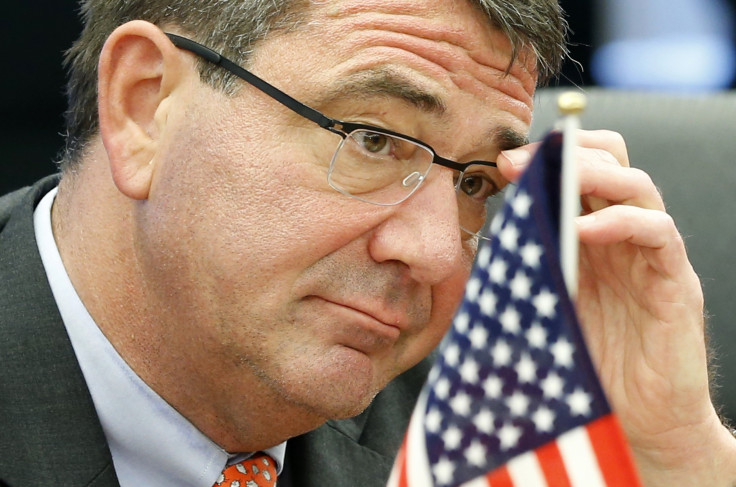For Ashton Carter, A Likely Easy Ride Through The Senate And A Hard Time At The Pentagon

President Barack Obama is just days away from nominating Ashton Carter as secretary of defense, replacing Chuck Hagel, who resigned last week. While many bet that Hagel’s replacement, an intellectual with a long history in the defense establishment, will be received far more warmly than Hagel in his Senate's confirmation hearings, the former deputy secretary of defense has shown on a number of occasions that he is an independent thinker. His history shows that he is unlikely to be a faithful executor of the White House's will at the Pentagon.
"People have speculated that Obama’s pick would be a yes-man," said Chris Preble, vice president for defense and foreign policy studies at the Cato Institute, a libertarian-leaning Washington think tank. "It’s not a given that the Senate will approve Carter. If we remember the fight over Hagel’s nomination, that surprised the White House a little bit."
But Preble says there is little early indication of pushback from Republicans in the Senate if Carter is nominated, which may occur within days. By all accounts, Carter is held in high esteem in the chamber.
“He’s well-respected over here,” Sen. John McCain, R-Ariz., the likely incoming chairman of the Armed Services Committee, told Politico on Tuesday, with fellow Republican Sen. Jim Inhofe of Oklahoma adding: “He’s not going to be as much of a political person as somebody might be that [Obama] might choose. If he’s nominated, it should be a pretty easy confirmation.”
Carter, who served as the second-in-charge under both Leon Panetta and Hagel, brings a vast depth of experience in defense management, including managing large budgets and being able to deal with the bureaucracy of the Pentagon.
And so far, his nomination is largely seen as a compromise with the Republican Senate that will take over in January. Many believed that Obama wanted a more compliant defense chief, someone who will not necessarily craft solutions, but endorse those coming down from the White House. According to analysts in D.C., Hagel had become increasingly frustrated with interference from the White House, among a range of other issues.
“They wanted a tame and compliant [secretary of defense], and they got one,” said Eric S. Edelman, a former undersecretary of defense who served under Donald Rumsfeld and Robert Gates in the Bush administration. “But apparently over time he [Hagel] became less compliant and started to push for more resources and perhaps had other differences.”
Carter’s nomination comes after Sen. Jack Reed, D-R.I., and former Pentagon official Michèle Flournoy withdrew from the running, leaving few viable options that fit the bill and could satisfy the new Republican Senate. While it's not clear who was the first choice, Preble isn't sure it was Carter.
“Apparently he wasn’t top choice," he said. "Speculation was that it was Michelle Flournoy, who declined, then Jack Reed, who took his name out of consideration, along with [Homeland Security Secretary] Jeh Johnson, who also said no," while also conceding that the top choice for these positions is seldom known. "It’s not like Carter’s name suddenly appeared after the others dropped out. He was always in the running, so it’s hard to say where he was."
But while Carter may turn out to be a more compliant operator than Hagel, he has dissented from the administration line on a number of occasions and hasn't always aligned with Obama. For example, he disagreed with the sequestration budget cuts that Obama signed into law in 2011. But he was also willing to take minority positions on foreign policy issues, suggesting in 2006 that the U.S. bomb North Korea should it to go ahead with the test launch of an intercontinental ballistic missile.
Carter’s nomination is expected to pass through the Senate without any problems. His knowledge of defense procurement puts him in line with Pentagon acquisition experts like the likely future chairman of the House Armed Services Committee, Texas Republican Mac Thornberry, and McCain himself, who as likely future leader of the Senate Armed Services Committee may push against mega-projects such as the $1 trillion F-35.
The three men, while not working directly together, symbolize the changing nature of defense spending, where budgets are shrinking and policymakers are looking to get more for less. If confirmed in his new position, Carter will be expected to continue the fight against ISIS in the Middle East, while also doing it on a shrinking budget, around $580 billion for the 2015 fiscal year compared to about $700 billion in 2011. And as the budget shrinks, Carter is expected to experience all the same problems as his predeccesor.
In the role as deputy secretary of defense, Carter endeared himself with troops on the ground after he successfully accelerated the shipment of better-armored vehicles to protect U.S. troops from roadside bombs in Afghanistan and Iraq, suggesting that he is willing to put money into urgent problems.
After an academic career spanning 20 years, Carter served as assistant secretary of defense for global strategic affairs under President Bill Clinton from 1993 to 1996 before taking on various roles in the department, culminating in being deputy secretary from October 2011 until December 2013.
"His career has sort of prepared him perfectly for this kind of a moment," Michael O'Hanlon, a defense industry analyst at the Brookings Institution, told CNN Tuesday. "On paper and in terms of his resume and preparation, you probably couldn't do much better.”
© Copyright IBTimes 2024. All rights reserved.












